Search Results
Showing results 1 to 20 of 49
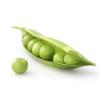
Modeling Mendel's Pea Experiment
Source Institutions
This modeling activity allows learners to discover for themselves what Mendel uncovered in his famous pea experiments.
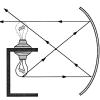
Touch the Spring (Lightbulb)
Source Institutions
In this activity, a lightbulb is placed in front of a concave mirror. The actual lightbulb is not visible to the viewer, but the viewer can see the mirror image of the lightbulb formed in space.
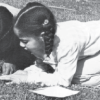
Bean Bugs
Source Institutions
In this outdoor biology and math activity, learners estimate the size of a population of organisms too numerous to count.
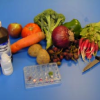
Plant Power
Source Institutions
In this chemistry challenge, learners identify which plants have the enzyme "catalase" that breaks hydrogen peroxide into water and oxygen.
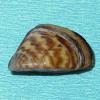
Mussel Your Way Through Photosynthesis
Source Institutions
Using zebra mussels (Dreissena polymorpha), elodea and an indicator dye, learners study the role of light in photosynthesis.

Life in a Nutshell
Source Institutions
In this multi-faceted game (on pages 25-35), learners recreate what happens to creatures in the Brazilian rain forest as they grow from egg to adult—especially those that use fallen, empty Brazil nut

Terrestrial Hi-Lo Hunt
Source Institutions
In this outdoor activity, learners search for the warmest and coolest, windiest and calmest, wettest and driest, and brightest and darkest spots in an area.

Your Father's Nose
Source Institutions
In this fun optics activity, learners explore principles of light, reflection (mirrors), and perception. Learners work in pairs and sit on opposite sides of a "two-way" mirror.

Making Connections: What You Can Do To Help Stop Global Climate Change
Source Institutions
In this cooperative learning activity, learners visit ten stations and are challenged to think critically about various conservation questions and issues.
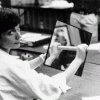
Mirrorly a Window
Source Institutions
In this activity about light and reflection, learners discover that what you see is often affected by what you expect to see.
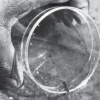
Water Striders
Source Institutions
In this outdoor activity/field trip, learners catch and observe water striders to explore their movement and feeding behaviors.

Variation Game
Source Institutions
In this set of outdoor games, learners play the role of monkeys that are trying to get enough resources (food, shelter, and space) to survive.
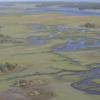
Nutrients in an Estuary
Source Institutions
In this activity, learners model estuaries, artificially enriching both fresh and salt water samples with different amounts of nutrients and observing the growth of algae over several weeks.
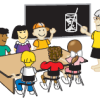
Introduction to the Scientific Method
Source Institutions
In this activity (page 26 of the PDF), learners make observations, formulate hypotheses and design a controlled experiment, based on the reaction of carbon dioxide with calcium hydroxide.
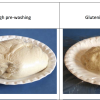
Wheat Evolution: Dough Washing
Source Institutions
In this activity (Page 22 of PDF), learners investigate the evolution of wheat by washing different types of dough with water and comparing the results.
Building a Community From the Ground Up
Source Institutions
In this activity, a group of learners work collaboratively to design and construct a paper model showing the evolution of an environment through multiple stages, from prehistory through the modern cit
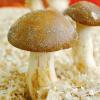
Home Mycology Lab
Source Institutions
Agriculturalists have long considered mushroom growing a challenge, largely because you need a piece of benchtop equipment known as a laminar flow hood.

Simulation of Laparoscopic Surgery Lab
Source Institutions
This simulation of laparoscopic surgery enables learners to practice and to learn this modern surgical technique.

Human Impact on Estuaries: A Terrible Spill in Grand Bay
Source Institutions
In this activity, learners make a model of a pollution spill that occurred at Bangs Lake in Mississippi and measure water quality parameters in their model.
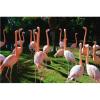
Feeding Facilitation: A Lesson in Evolution and Sociobiology
Source Institutions
This is an outdoor activity designed to demonstrate evolution of feeding behavior in flocking, schooling or herding animals that maximizes allocation of food resources and enhances survival.
